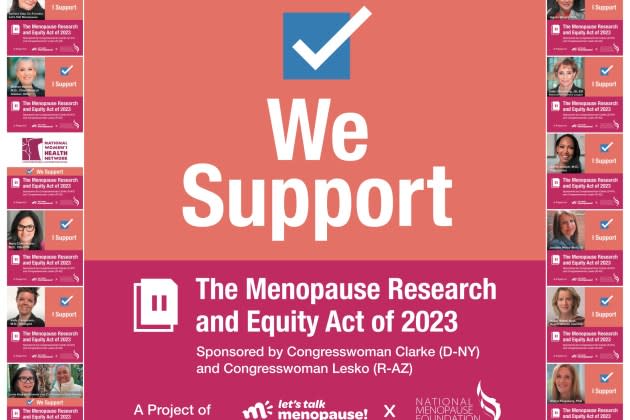A Menopause Research and Equity Act Has Been Presented to Congress

Wednesday, Congresswomen Yvette Clarke of New York and Debbie Lesko of Arizona, in collaboration with nonprofit Let’s Talk Menopause, presented the Menopause Research and Equity Act to Congress.
The aim of the bill is “to require the director of the National Institutes of Health to evaluate the results and status of completed and ongoing research related to menopause, perimenopause or mid-life women’s health, to conduct and support additional such research and for other purposes,” the bill states.
More from WWD
Poosh Releases 12 Days of Pooshmas Advent Calendar With Social Media Campaign: What to Know
How L'Oréal Brands Are Growing Earned Media Value Faster Than Competitors on Social Media
EXCLUSIVE: Selena Gomez Enters Fragrance and Body Care With Find Comfort
According to Clarke, the bill aims to require NIH “funding allocated for research over the next five fiscal years” and “a report of their findings and strategic plans that will address those identified gaps in knowledge and research.”
The act had previously been introduced in 2022 but shortly afterward the original advocates were voted out of office. For Clarke, it was a no brainer to pick up the bill herself.
“As a member of the energy and commerce committee, I’ve been doing a lot of work around women’s health and health issues that oftentimes are spoken about, but nothing is done about,” she said, specifically pointing to fibroid and women’s reproductive health research.
“[This act] finally puts menopause on the radar of our major federal health agencies,” she added.
Clarke emphasized that the bill has bipartisan support.
About a year ago, Congresswoman Clarke tapped Donna Klassen, cofounder of Let’s Talk Menopause, a nonprofit aiming to provide menopause education and resources. During that time, Klassen and her team created a coalition of advocates who will serve as ambassadors of the bill.
“With the political system the way it is, [we asked] what is it that we can do that’s going to have an impact from the beginning,” Klassen said. “Initially it was calling for more money for research and then realizing that there’s already money in the NIH. [It’s] reallocating money to go into menopause care because there is such a gap in research.”
After today, Let’s Talk Menopause and members of the coalition, including advocate Tamsen Fadal, will use social media and additional platforms for outreach and to acquire signatures.
“The Menopause Research and Equity Act is not just legislation; it’s a validation of millions of women’s experiences,” Fadal, Let’s Talk Menopause board member and ambassador, said in a statement. “It’s a movement toward a society where the transition of menopause is met with open dialogue, support and the care it deserves.”
While the act highlights the future of menopause research, it’s also an opportunity to reflect on past findings, most notably the 2002 Women’s Health Initiative Study, which claimed women using hormone replacement therapy were more susceptible to breast cancer and heart attacks. The findings are widely controversial now, as many experts have found flaws with the study, including lacking statistical significance. While hormone replacement therapy usage is low today, additional studies have shown its efficacy when used to treat menopause symptoms.
“No one’s looking at the full picture,” said Klassen, noting the study instilled fear in many women. “Women are not being given the information that they need to make decisions that are impacting their life.”
While menopause-centric brands have made a splash in the women’s health market over the past few years, Klassen says there is work to be done starting with this act.
“This bill will highlight…that we need money for basic research,” she said. “We need to make sure that people are getting science and in order to get science you need to have research.”
